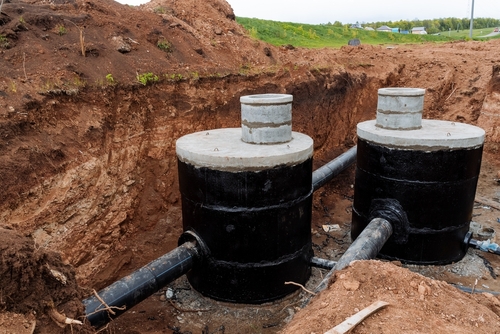What To Consider When Replacing A Septic System

Replacing a septic system is a significant investment and a crucial decision for homeowners. Septic systems play a vital role in managing household wastewater and ensuring environmental protection. When considering replacing a septic system, there are several factors to take into account to make an informed choice that meets your needs and complies with local regulations. In this blog, we will discuss the key considerations homeowners should keep in mind when replacing a septic system.
Assessment of Current System
Before replacing a septic system, it is essential to assess the condition and functionality of the existing system. An inspection by a qualified septic professional can provide valuable insights into the state of the system, including any damage, leaks, or malfunctions. The assessment will help determine whether repairs are feasible or if replacement is the best course of action. Additionally, the size and location of the current system will impact the design and installation of the new system, making an accurate assessment crucial in the decision-making process.
Local Regulations and Permits
Compliance with local regulations and obtaining the necessary permits are crucial when replacing a septic system. Each municipality has specific codes and requirements for septic system installation, ensuring public health and environmental safety. Before proceeding with a replacement, homeowners should consult with local authorities or septic professionals to understand the regulations governing septic systems in their area. Obtaining the required permits and approvals is essential to avoid legal issues and ensure the new system meets all regulatory standards.
Soil and Site Conditions
Soil and site conditions play a significant role in the design and performance of a septic system. Different soil types have varying abilities to absorb and treat wastewater, affecting the efficiency and longevity of the system. Conducting a soil analysis to determine soil permeability and absorption rates can help identify the most suitable type of septic system for the property. Additionally, site characteristics such as topography, groundwater levels, and proximity to water bodies should be considered when planning the replacement of a septic system to minimize environmental impact and ensure proper functionality.
System Design and Size
The design and size of the new septic system must be tailored to the household’s wastewater generation and usage patterns. The number of occupants, water usage, and the size of the property are factors that influence the type and capacity of the septic system required. A professional septic designer can assess these parameters and recommend a system that meets the property’s needs while adhering to regulatory guidelines. Proper system design is essential to ensure effective wastewater treatment and prevent overloading or premature system failure.
Technology and Innovation
Advancements in septic system technology offer homeowners a range of options for efficient and environmentally friendly wastewater management. When replacing a septic system, consider incorporating innovative technologies such as aerobic treatment units, drip irrigation systems, or advanced filtration systems. These technologies can enhance treatment efficiency, reduce maintenance requirements, and promote better environmental stewardship. Consulting with a knowledgeable septic professional can help homeowners explore the latest advancements in septic system technology and choose the best option for their property.
Installation Costs and Financing Options
Replacing a septic system involves significant costs, including excavation, equipment, materials, and labor. Homeowners should obtain multiple quotes from reputable septic contractors to compare pricing and services before selecting a provider. Additionally, exploring financing options such as loans, grants, or incentive programs can help mitigate the financial burden of septic system replacement. Some municipalities offer assistance or incentives for upgrading to more efficient and environmentally friendly septic systems, making it worthwhile to investigate potential funding opportunities.
Maintenance and Long-Term Care
Proper maintenance and regular inspection are essential for ensuring the longevity and performance of a septic system. When replacing a septic system, homeowners should establish a maintenance schedule and adhere to recommended practices to prevent issues and extend the system’s lifespan. Routine pumping, monitoring of water usage, and avoiding harmful substances can help protect the system and minimize the risk of failures. Educating yourself on septic system care and partnering with a reputable septic service provider for ongoing maintenance can safeguard your investment and prevent costly repairs down the road.
Summary
Replacing a septic system is a significant undertaking that requires careful consideration of various factors. By assessing the current system, understanding local regulations, evaluating soil and site conditions, designing an appropriate system, considering technology options, managing costs, and planning for long-term maintenance, homeowners can make informed decisions when replacing a septic system. Working with experienced septic professionals and staying proactive in system care can help ensure a successful replacement process and promote the efficient and sustainable management of household wastewater.
Need Septic Tank Services in Prior Lake, MN?
Since 1956, Mike’s Septic & McKinley Sewer Services has been providing the local area with an invaluable service. We are a family-owned and -operated company that takes pride in the work that we do and the relationships we build with our customers. We strive for perfection with each job we take and make sure our customers are always happy. At Mike’s Septic & McKinley Sewer Services, we specialize in everything septic. We handle anything from tank and system design to the actual installation. We do septic system and tank repairs, cleaning, pumping, and routine maintenance. We also do tank and system compliance inspections and certification. Contact us today to learn more about what we can do for you!
